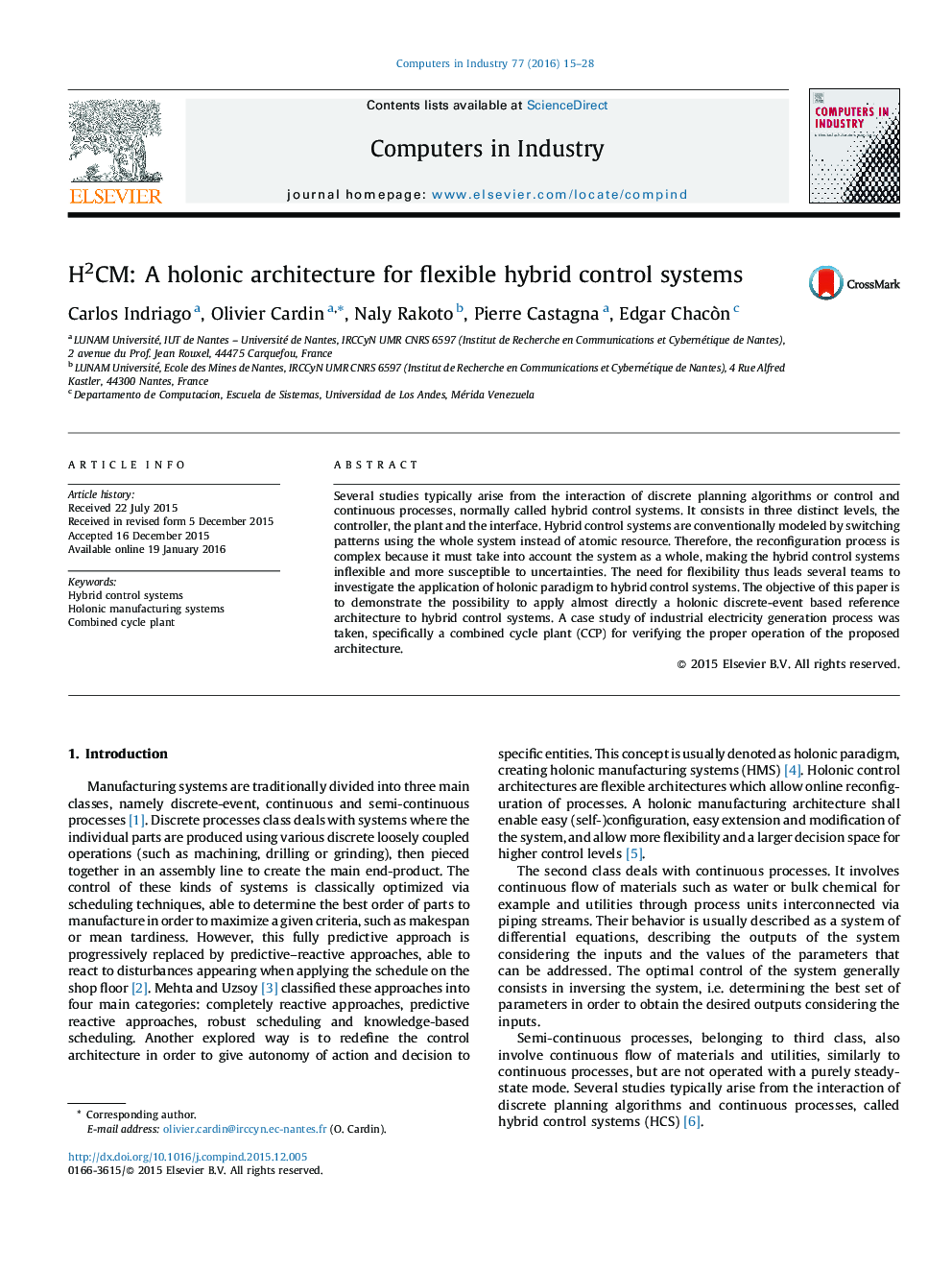| Article ID | Journal | Published Year | Pages | File Type |
|---|---|---|---|---|
| 508929 | Computers in Industry | 2016 | 14 Pages |
•Classical hybrid control systems lack flexibility.•Holonic manufacturing systems enhance flexibility but are not adapted to hybrid control systems.•A new holonic reference architecture, adapted to hybrid control systems, is proposed.•An application to a combined cycle plant is addressed and shows good results in performance and flexibility.
Several studies typically arise from the interaction of discrete planning algorithms or control and continuous processes, normally called hybrid control systems. It consists in three distinct levels, the controller, the plant and the interface. Hybrid control systems are conventionally modeled by switching patterns using the whole system instead of atomic resource. Therefore, the reconfiguration process is complex because it must take into account the system as a whole, making the hybrid control systems inflexible and more susceptible to uncertainties. The need for flexibility thus leads several teams to investigate the application of holonic paradigm to hybrid control systems. The objective of this paper is to demonstrate the possibility to apply almost directly a holonic discrete-event based reference architecture to hybrid control systems. A case study of industrial electricity generation process was taken, specifically a combined cycle plant (CCP) for verifying the proper operation of the proposed architecture.
